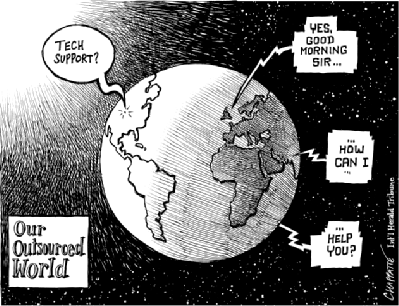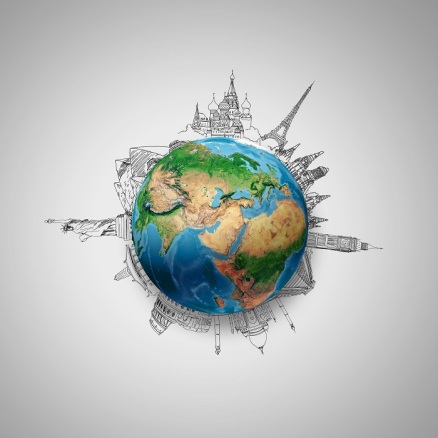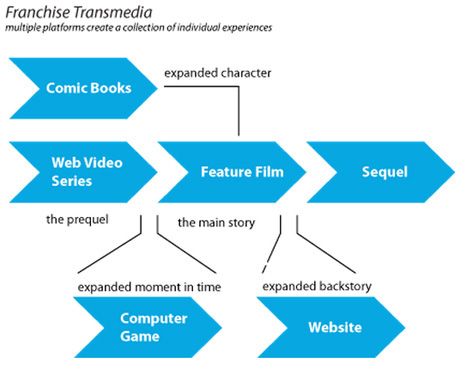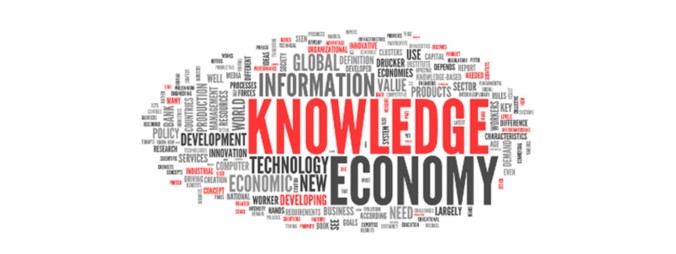Through Globalisation the last decades have changed a lot. This is due to several factors. Trade between countries, increased work mobility and the improvement of technologies.
Through constant development and progress as well as the global networking in many areas ensures the change in the global economy. It is mainly telephones, the internet and the better transport possibilities, which improve the information and exchange of goods. Also, constant technological advances and changes as well as the global networking of all areas ensure the change in the global economy.
People from different countries start communicating and sharing ideas with each other. The sharing of ideas has affected how businesses conduct around the whole world. Also there are three Dimensions of Globalisation the Communicative and Community, the Commercial and Industrial, and the Political and Social Globalisation.
Since the Global Business, companies are networked worldwide, Outsourcing is getting an important factor.
Outsourcing is typically used by companies to save costs. Many products are produced in low-wage-countries e.g. products such as textiles and simple toys. Most of the products are produced abroad which is not always seen positively since it has the consequences of losing workplaces. Also, it is not environmentally friendly by e.g. the transport.
Globalisation has many aspects. The internet provides a fast access to knowledge. It is easier for people to search in the internet for something. In addition, research and innovation are creating new jobs. As we know, Knowledge workers are very important in our economy.
There is also Globalisation in the cultural and social sphere. People from different cultures are getting closer and begin to share different things. Moreover, through Globalisation, many nations are converging to a better welfare. Through the global networking, communities were developed. Also, the communication costs have changed. It is easier to conduct daily contact via the internet for companies or in general people.
According to the question what factors and activities would make my work globalised, I would proceed as it follows, since I would like to work in the marketing section:
As a first step, I would publish my work on social media platforms. Nowadays Social Media is an important tool for our society. Almost everyone in the world is using Facebook or other platforms and there I would begin. It is a new structure to connecting people.
It is also a more favourable way to reach many people in different parts of the world and to draw attention to the work. There you can make future buyers aware of the work or the product. Through the social media, many people are linked to one another and right there I see a great opportunity to globalise the work. Nevertheless, it is important to look at the platform on which the company is active, as not every platform is equally popular in every country.
In addition, there is also a traditional (offline) community which must be considered. Therefore, I would pay attention to newspapers and television commercials. To make the older target group aware of my product. The community of companies should also be in the first place. They want to have feelings of membership, and feelings of influence.
It is also important to research the market. Business must have a good understanding of the markets they are expanding into. In addition, attention also must be paid to cultural differences and to find the right translation, especially in Globalisation. Every culture is different and has different values.
Furthermore, outsourcing would be a possible point. Since the Knowledge workers, as described in the previous blog entries, play an important role in our economy they could be outsourced. That means on the one hand, more profit for the company and on the other hand less costs.
All in all, companies should publish their work on the social media networks and also via Television commercials worldwide; but they have to pay attention to what they publish. There are many factors that have led to the Globalisation around the whole world but through Globalisation and digitalization, people around the world can network with each other and I think that is a wonderful thing.
Word count: 787
References:
Definition of Globalisation. lexicon.ft.com
Globalization. (2017). Wikipedia.com
What is Globalization?.(2016). Globalization101.org
Global Business Network. (2017). Wikipedia.com
Globalisation has made the world a better place.(2017). Theguardian.com
What is a Community? . ibm.com
Globalization and Cultural Convergence. (2009). Theglobalist.com
Making Globalisation work. (2006). Theguardian.com
Impact of the Globalization of Social Media. Medium.com
The Impact of Globalisation on Social Media.(2015). Searchlaboratory.com
What does it mean to be a global business?.(2014). Quora.com
Global Business. (2017). Yourdictionary.com
Pictures:
http://static.burohappold.com/media/2016/11/end-of-globalisation.jpg
http://cdn.essay.ws/wp-content/uploads/2015/11/Globalisation.jpg
Videos:








